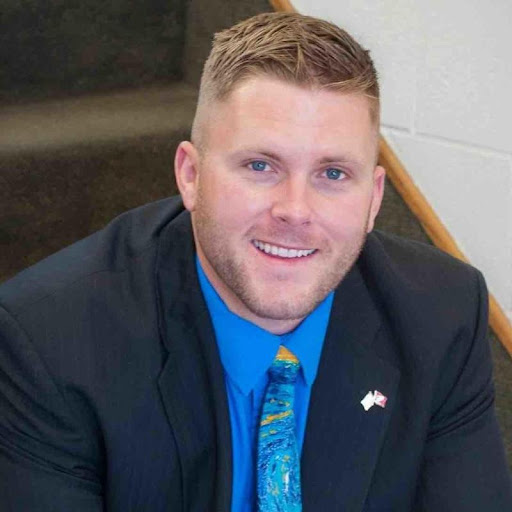Part II: Who’s Researching the Researchers?
Veterans who trusted MAPS with their trauma have made allegations of manipulation and deceit. "Psychedelic soldier" image generated by Russell Hausfeld, using Midjourney.
This is Part II of the "The Ecstasy of Agony" Dig series
"Psychedelic soldier" image generated by Russell Hausfeld, using Midjourney.
This is Part II of the "The Ecstasy of Agony" Dig series
This is the concluding feature story in the multi-part Dig series, “The Ecstasy of Agony,” investigating the politics of psychedelic research and its commercialization, with a focus on the historic and present-day links between psychedelia and the military. The first feature explored how veterans were deployed by the Multidisciplinary Association for Psychedelic Studies’ (MAPS) as public relations mascots to gain public sympathy for psychedelic pharmaceutical agendas. This piece delves deeper into the lived experiences of veterans recruited by MAPS and explores allegations of manipulation tactics on the part of MAPS and its researchers — allegations that raise serious questions about MAPS’ methods and relationships with veterans over the last decade.
I. Controlling the “Hordes of Uncontrolled” Veteran Activists
Alongside psychedelics, the Multidisciplinary Association for Psychedelic Studies’ (MAPS) has attempted to conduct research into medical cannabis. After some initial struggles, the organization found support for this research by enacting the same strategy employed to advance its MDMA agenda: centering military veterans in marketing, testimonials and research.
Starting in 2010, MAPS began work to develop a Phase 1 clinical trial protocol to study the effects of cannabis on veteran PTSD. It recruited a number of cannabis-using military veterans to fight for its cause — sending them on public relations missions that, to some, felt increasingly exploitative. Over seven years, this study also experienced a number of bureaucratic and political setbacks, including clinical holds from the Food and Drug Administration, hesitancy from Institutional Review Boards and the dismissal of the study’s lead researcher, Dr. Sue Sisley, from her post at the University of Arizona.

seeks ‘honest’ discussion of pot and PTSD” video.
One of the veterans recruited by MAPS was Ricardo Pereyda, a veteran of the Army Military Police Corps who was studying for a degree in public management and policy at UofA. After years struggling to manage post-traumatic stress disorder resulting from his 2004-5 tour to Baghdad, he was eager to assist with cannabis research and increase access for veterans with PTSD.
Pereyda had personally experienced the healing effects of cannabis for his own PTSD after substituting many unhelpful prescriptions with the plant. It helped him cope with suicidality, kick an alcohol habit and begin putting his life back together. For years, this was his little secret. “I never felt the need to disclose to anyone, outside of visitors to my home, what was in my medicine cabinet,” Pereyda wrote.

courtesy of Ricardo Pereyda.
It was in 2013 that Pereyda met Sisley, then the principal investigator of an upcoming study of the safety and efficacy of cannabis used by veterans with treatment-resistant PTSD. Pereyda started collaborating with Sisley and MAPS to promote the study to fellow veterans and he was encouraged to speak publicly about his drug use. His first-ever public appearance discussing his own cannabis use was on Huffington Post Live, alongside MAPS Executive Director Rick Doblin.
In 2014, during the promotional blitz leading to the cannabis study, Sisley was controversially let go from UofA, the university housing the study. The university administration claimed that it did not renew Sisley’s contract due to funding and reorganization issues, and that it was still committed to conducting the cannabis study in collaboration with MAPS.
Sisley and MAPS had other plans, however. Taking the story of what they dubbed Sisley’s “firing” — to all appearances, it involved a standard non-renewal of her contracts — to the press, claiming that she was unfairly “fired” due to outside political pressure. Sisley believed her non-renewal was retaliation after she clashed with state lawmakers over her research — specifically with Sen. Kimberly Yee.
Prior to her dismissal from UofA, Sisley lobbied for her cannabis study to be partially funded by the Arizona Department of Health Services with fees collected from medical-marijuana patients and dispensary operators. The legislation ended up on the desk of Senate Education Committee chair Sen. Yee, who ultimately refused to place the bill on the committee’s agenda.
Following this decision, Pereyda says that Sisley approached him about leading a recall campaign leveled at Yee, through the Arizona Veterans Assistance Committee. Pereyda was skeptical of the utility of such a campaign and warned Sisley that he thought it may have consequences, but decided to stay in step with his new collaborator.

courtesy of Ricardo Pereyda.
“I had warned Sisley that our correspondence was likely to be monitored,” Pereyda said, noting that he had corresponded with her using a university email account. “It was her call if she wanted to go down the dirty politics road, which she chose to do. As a scrapper and a friend, I went along with her.”
The recall campaign was short-lived. After a number of discussions with Yee’s campaign lawyers, Pereyda sent them a bulleted list for approval outlining agreements they had discussed. Yee’s lawyers ended communications by calling the list Pereyda sent potential “bribery” and Pereyda eventually signed paperwork to end the recall campaign.
Afterwards, Sisley publicly distanced herself from any involvement in politicking around cannabis research in Arizona, and eventually dumped much of the blame on Pereyda and other veterans who she’d encouraged to get involved.
* * *
Though UofA publicly stated that Sisley’s contract wasn’t renewed due to funding and reorganization, two factors seem to have led the university to question Sisley’s political involvement: A UofA logo appeared in a recall campaign image on Facebook, and the university had likely observed emails from Sisley discussing the recall campaign.
In an April 4, 2014 email between Sisley and interim dean of UofA’s College of Medicine, Joe Garcia, Sisley denied knowing anything about the university logo being added to recall campaign publicity and claimed she never used her university email for political activities.
Sisley continued, “The downside of this enthusiasm [for my cannabis research] is that we have hordes of uncontrolled activists (many of whom are passionate veterans) who feel they have fought for this country in order to defend their ability to speak publicly when they disagree with lawmakers.”
Sisley concluded the email by saying that she only wanted to focus on scientific and academic pursuits. “I never wanted to become an activist,” she wrote. [1]
Months later, Sisley reflected on this interaction with The Arizona Republic, stating, “I made it clear [to Garcia] that I’m not a fan of her (Yee’s) choices. I never suggested she should be recalled.”
Pereyda said it is false that Sisley never suggested Yee should be recalled. And he questions the way Sisley distanced herself from the “hordes of uncontrolled activists,” as he was privy to a number of behind-the-scenes conversations in which Sisley fed talking points to and directed these very same veteran activists.
Emails seen by Truthdig from July of 2014 indicate that Sisley had consciously stopped using her university email after being alerted to potential surveillance of her political activities by university officials. Pereyda confirmed that he had been using a UofA email at times to correspond with Sisley and Yee’s attorney.
“The administration knew exactly what was going on, full transparency. It is one of the reasons I begged Sisley not to initiate the recall campaign, and to chill out with her political activity which was putting the research everyone said they wanted at risk,” Pereyda said. “She didn’t listen, and I think she did it on purpose in order to start shit and go viral.” And viral Sisley went.
MAPS released a press release standing in solidarity with Sisley and Sisley filed an appeal for reinstatement. The story was covered by national press including NBC, CNN and The New York Times, and a number of local Arizona news outlets.

Gupta on CNN. Photo from CNN’s “University drops marijuana researcher” video.
During this time, Sisley rallied veterans to aid in her reinstatement to UofA. Many of the emails observed by Truthdig from this time illustrate an intention from MAPS and Sisley to leverage veteran voices for their own publicity gains.
In one email, Sisley lamented how she needed a list of veterans willing to talk on camera about their PTSD and cannabis use: “I need five solid articulate veterans who are available on a minute’s notice [sic].”
Other emails observed by Truthdig, between Sisley and journalists at this time, evidence her attempts to connect her own veteran patients with the press. In one exchange, Sisley wrote, “I can find you some other veterans. I have hundreds of patients who I can request to speak with you.”
And then things took a more troubling turn. Truthdig observed other instances of Sisley explicitly trying to direct veterans to action on her behalf.
After a woman left a critical comment on a July 3, 2014 pro-Sisley publication, Sisley emailed a group thread, “Maybe we need to get the veterans on these sites to start attacking her.”
In another email exchange from June of 2014, Sisley expressed outrage at UofA President Ann Weaver Hart. Calling on veterans to support yet another removal of someone in power, Sisley stated that Hart should be “terminated.”
“Her contract is up for renewal/vote of the AZ Board of Regents,” Sisley wrote. “We need to attend the September meeting in Flagstaff of the Board of Regents and urge them to vote NO on her renewal. WE NEED TO BRING THE ENTIRE veterans & MMJ [marijuana] COMMUNITY UP TO THE FLAGSTAFF MEETING AT NAU [Northern Arizona University] TO SPEAK AT CALL TO THE AUDIENCE [sic].”
In a July 14, 2014 email from Sisley to three veterans, she referenced this again, writing, “Pres. Hart: Good luck on your contract renewal September 24.”
Finally, Truthdig observed emails in which Sisley and MAPS expressed encouragement to a veteran who said that he had edited Joe Garcia’s Wikipedia page to include a “Controversies” section that detailed information about Sisley’s non-renewal.
Sisley responded to this by looping in MAPS’ at-the-time strategic communications director, Brad Burge, and writing: “Brilliant!!! Can you go on Pres. Hart wiki page next lol?”
Burge responded with further encouragement, stating, “You guys are awesome.”
After a woman left a critical comment on a July 3, 2014 pro-Sisley publication, Sisley emailed a group thread, “Maybe we need to get the veterans on these sites to start attacking her.”
Another individual on this email exchange expressed concern at this engagement, asking Sisley, Burge and the veteran to be legally mindful and provided them with a link to the Wikipedia page of the Computer Fraud and Abuse Act.
Throughout this time, Pereyda said that Sisley was publicly denying involvement in the campaign to recall Yee, and feigning as if the veterans organizing on her behalf were doing it without her encouragement and maneuvering.
For example, after the email exchange above in which Sisley encouraged veterans and cannabis advocates to show up to the Arizona Board of Regents meeting, Pereyda alleges that Sisley hid in her car in the parking lot texting him for the entire event.
“It was just another example of her pulling the strings, only to back out at the last minute from public involvement while lining up media interviews so she could talk about how outraged everyone was that she was being treated in such a way by the university,” Pereyda said. “She puts words in veterans’ mouths, and gets them all pissed off and then points fingers at them and acts shocked for the cameras.”
A Navy veteran named Paul Haro, who collaborated with Sisley and MAPS around this time, expressed similar sentiments. He said veterans’ disabilities were exploited for marketing and they were asked to perform a number of intense, unpaid tasks.
Haro said that the veterans that MAPS attracted helped break down a lot of barriers for cannabis research through the circulation of petitions and by directly reaching out to politicians on MAPS’ and Sisley’s behalf.
“We’re very proud of that,” Haro said. “But, you know, not proud about how [they] kind of used and abused some guys and spit them out.”
Haro recalled one instance around 2015 when he saw Sisley speak about cannabis research. Following Sisley’s speech, Haro remembered a triple-amputee veteran being “paraded” around to talk about how cannabis changed his life.
“She would kind of tear at the heartstrings of Americans and politicians and whoever by displaying the disabled veterans that are needing cannabis,” Haro said. “It’s like yeah, give that guy as much weed as he needs, you know? But he was being used for photo ops and stuff. They were exploiting this guy.”
Haro remembered another instance around this time when Sisley called upon a number of veterans (none of which had counseling credentials) to provide crisis support for a suicidal veteran in Utah.
“He was being used for photo ops and stuff. They were exploiting this guy.”
— Navy veteran Paul Haro
“Doc Sue told me on the phone that he might be another one of the 22 [veterans per day] that commits suicide and that messed with my mind,” Haro said. He felt obligated to call this veteran when no one stepped up. In an email from Haro to Sisley and the other veterans from September of 2015, Haro wrote, “I’m not trained for this type of stuff but I’m trying to do the best I can.”
After he called this veteran, Haro said Sisley began pushing him to become a peer support counselor for veterans against his better judgment and the recommendation of his own PTSD counselor.
Regardless of his resistance, Haro said Sisley connected him with a peer support recruiter who continued pressuring him to take up the work. Haro explained that he had already told Sisley he wasn’t ready and that his own counselor didn’t think he was in a position to provide peer support. The recruiter balked at this, saying, “I can’t believe your PTSD counselor told you you weren’t stable enough.”
“I go, ‘I’m still healing myself, dude. Don’t force me to do something I’m not ready for,’” Haro said.
* * *
Pereyda made moves to distance himself from MAPS around 2015 after disappointment with the way that Sisley was using his work to boost her own funding potential and status as a cannabis research “gatekeeper.” Attempting to carve out a niche for his own priorities in the cannabis space, Pereyda accepted the role of vice president and COO of the veteran-focused Weed for Warriors Project (WFW). He brought along another veteran named Sean Kiernan — who had also been involved with Sisley and MAPS — to act as CFO for WFW (Kiernan would later become the CEO of the organization.).
In order to do what he felt Sisley was not doing — such as educating the public on cannabis-using veterans’ stories outside of a research context — Pereyda devised a plan to conduct a cross-country cannabis education tour through WFW. He began networking and received sponsorships for the project from brands like Mary’s Medicinals and MagicalButter.
When it came to light that WFW was helping veterans in Colorado grow, trim and access cannabis outside of medical research settings, Pereyda said that Sisley began criticizing his efforts to colleagues, calling them illegal and saying he was “encouraging veterans to break the law.” Pereyda said that he wasn’t against medical research like Sisley’s, but he believed “we needed to get out there and put this shit in people’s hands so that it’s not a bullet or something instead.”
This tension came to a breaking point when Pereyda was slated to speak about WFW and its initiatives at the inaugural 2015 Southwest Cannabis Conference and Expo in Phoenix, Arizona. Sisley — who was also slated to speak — saw that Pereyda would be appearing and contacted the organizers of the conference to get him removed. The organizer acquiesced to Sisley’s demand and removed Pereyda from the speaker line-up to secure Sisley’s attendance.
Furious, Pereyda essentially told the organizer, “Go fuck yourself,” and expressed his desire to sever ties with MAPS and Sisley. Sisley would continue to discourage cannabis advocates and conference organizers from interacting with Pereyda after that, and his access to the cannabis world dwindled.
In the face of all this, Pereyda continued his advocacy for veterans: freelance writing for outlets like Illegally Healed, coordinating veteran events and memorials and helping submit cannabis policy suggestions to government agencies. While he is proud of the work he has been able to do with veteran populations, he claims his experience of falling out with Sisley and MAPS has had a number of detrimental consequences in his personal and professional life — and he worries that this may happen to other veterans in the organization’s orbit.
“I watched as Dr. Sisley and others used veterans up and discarded them as soon as they no longer served a useful purpose, regardless of mental health consequences or social implications for them,” Pereyda said. “She is still doing it, and so is Dr. Rick Doblin and MAPS.”
Sisley remains MAPS’ primary sponsored clinical researcher for cannabis. In lieu of reinstatement of her university position, Sisley created her own research organization, the Scottsdale Research Institute, and completed the Phase 1 cannabis research that was thought to be in jeopardy. She was also recently appointed to the Colorado Psychedelics Medicines Board, and is the founder and president of the veteran-focused nonprofit, Field to Healed, which is gearing up to conduct psilocybin research. Sisley is also jump-starting new MAPS-sponsored Phase 2 research in Michigan, studying cannabis to treat veteran PTSD.
* * *
MAPS, alongside two Michigan universities, received a large sum of money from Michigan cannabis tax revenue as part of a requirement created when cannabis was recreationally legalized in the state. The Michigan Cannabis Regulatory Agency (CRA) split $40 million in tax revenues between the groups to conduct research into veteran PTSD treatment: $19.6 million went to Wayne State University; $7.4 million to University of Michigan; and $13 million to MAPS.
As this research is being rolled out, veterans in Michigan have begun speaking out about a lack of transparency and accountability on the part of grant recipients. Thus far, none of the recipients have received FDA approval for their research. And emails seen by Truthdig indicate that at least a million dollars have already been spent by MAPS, alone.
In an Aug. 11, 2022 email sent by Sisley to collaborators at MAPS and MAPS Public Benefit Corporation, she wrote that she was worried the CRA fund was about to be aggressively audited by Michigan veteran coalitions. Sisley wrote that she was briefing the MAPS team on this issue so they could get ahead of the criticism and be prepared to “answer questions” from the veteran community.
“I’m not clear on how MAPS spent over $1 million on a study that has not yet begun,” Sisley wrote at that time. “I just hope we will have all the $$$ resources needed to actually complete the trial.”
Thus far, none of the recipients have received FDA approval for their research. And emails seen by Truthdig indicate that at least a million dollars have already been spent by MAPS, alone.
Michigan veteran Anton Harb said that one of the reasons vets are so upset in Michigan is that none of the grant recipients have received FDA approval and the two universities were proposing observational studies that would cost much less than a randomized clinical trial — after they were handed multimillions. To MAPS’ credit, Harb said, the nonprofit is at least attempting a study that met grant requirements to seek FDA approval, but the organization is stuck in clinical hold and has not begun research.
Veterans were told they would not be given direct access to information about how funds were being spent; instead they were advised to use the Freedom of Information Act (FOIA) for access to the financial documents.
“Is this process just going to lag out and all of these millions of dollars [are] going to be spent on salaries? And at the end of the day we have no data?” Harb asked the Detroit News.
In an Aug. 14, 2022 email exchange viewed by Truthdig — just days after Sisley was internally questioning MAPS’ own spending — she contacted Kiernan of WFW disparaging the plans of Wayne State University. She said that it is “wrong on so many levels and scary that this woman [the researcher from Wayne State] is being given millions of dollars of veterans research money by the CRA with absolutely no oversight.” She continued, saying that “awardees gain an unsupervised SLUSH FUND [sic].”
While there are valid concerns to be had about Wayne State’s use of funds, Sisley’s focus on the university could be seen as a way to divert attention away from MAPS’ own unaccounted for spending of $1 million before the completion of any research.
Around a month after this email exchange, WFW published a press release using Sisley’s exact language. The press release read: “$40 million approved by Michigan Voters for veteran research has turned into a potential slush fund for a State University.”
No attribution to Sisley or mention of MAPS was included in this press release, illustrating another example like those enumerated from Arizona in which Sisley maneuvered PR from veteran groups to benefit her, or to direct criticism toward a group other than her own. MAPS has not begun Phase 2 clinical research into cannabis for treatment of veterans and remains on a clinical hold from the FDA.
II. Did MAPS and its Researcher Act Unethically?
Dr. Sisley isn’t the only controversial figure to emerge in MAPS’ work with veterans.
While working with WFW in 2016, Pereyda and Kiernan were contacted by a Marine veteran named Ryan LeCompte who wanted to warn people about his experience with MAPS. WFW hosted LeCompte on its podcast to discuss his experience in an episode titled, “Did MAPS and Its Researcher Bia Labate Act Unethically?”
LeCompte’s experience volunteering with MAPS began around 2013, and he supported Sisley when she was attempting to get reinstated at UofA. He spoke out on behalf of MAPS’ cannabis research and the impact that alternative medicine had on him and his fellow veterans. But LeCompte’s true passion was for the psychedelic brew, ayahuasca.
After a life-changing experience with the brew, he undertook a mission to spread awareness and increase veteran access to ayahuasca treatment.

from LinkedIn.
In order to do this, LeCompte founded the Colorado-based nonprofit organization Veterans for Entheogenic Therapy (VET) and enrolled in a graduate-level transpersonal psychology program at Naropa University to become a psychotherapist. Through VET, LeCompte helped educate veterans about ayahuasca and he began coordinating trips to South America for veterans who had been diagnosed with PTSD to work with Peruvian ayahuasca shamans. MAPS occasionally sponsored veterans on these trips and helped pay for their travel.
In 2015, LeCompte announced that he would be assuming the role of principal investigator for a MAPS-sponsored observational study of ayahuasca, for which he drafted a trial protocol.
This study would draw on LeCompte’s experience and connections from organizing veteran ayahuasca retreats, and it set out to produce first-of-its-kind observational research into the safety and efficacy of ayahuasca for combat veterans with PTSD.
What followed for LeCompte was a series of betrayals as MAPS’ staff began having conversations behind his back about his study, allocating authority to parties other than him and making judgmental claims about his mental health. Ultimately, this ended in LeCompte’s resignation from the study and retreat from public-facing advocacy efforts.
According to LeCompte, the trouble began when Brazilian anthropologist Dr. Bia Labate was brought into conversations around the study by Doblin. Labate’s organization, Chacruna, hosts a number of psychedelic-related events and Labate has edited many anthropological books on ayahuasca.

from Chacruna’s “‘Our World is in Trauma’: War Veteran Discusses Healing with
Ayahuasca” video.
LeCompte told WFW that Doblin brought Labate into discussions because she had published an article on veterans and PTSD, but LeCompte was immediately turned off by Labate’s attitude towards veterans.
“She believed vets to be war mongering, crazy, alpha, narcissistic males,” LeCompte told WFW. “[But] she did have some experience with vets and there seemed to be some potential opening there about her understanding…so Rick brought her on to the chain of emails for the research team for the ayahuasca study.”
LeCompte said that he observed Labate express a number of anti-veteran sentiments (including the use of phrases like “baby killers”) based on her opinions of U.S. foreign policy. He made it known that he found what she was saying to be offensive and that he worried that her unchecked biases may hinder their research.
As the study progressed, tension between LeCompte and Labate grew. LeCompte began scouting potential future locations for veterans to access ayahuasca inside the United States, such as the Santo Daime church and Soul Quest ayahuasca retreat [2]. One goal of this scouting was to save MAPS money on veteran travel costs.
In a March 9, 2016 email observed by Truthdig, from LeCompte to his fellow researchers, he wrote that he would be bringing the founder of Soul Quest to their next meeting to discuss information about filing DEA exemptions. To this, Labate responded, “I think it is a consensus that we do not want Chris, the founder of Soul Quest ONAC, to join our meeting, as we have other priorities.”
This was the final straw for LeCompte. He responded the same day to say he was disappointed by the refusal to even have a conversation with a Soul Quest representative, and that he would be bowing out of the study.
LeCompte said that he observed Labate express a number of anti-veteran sentiments (including the use of phrases like “baby killers”) based on her opinions of U.S. foreign policy.
“I have spent the last two years of my life working on making this a reality, before any of you were involved. I put away years of unpaid time and dedication into this project,” LeCompte wrote.
Three days later, LeCompte reached out to the group to say that he was willing to give MAPS another try, if some questions could be answered honestly. He requested that Labate’s role in the study be more clearly defined, noting that dynamics had shifted since she was brought in. He said that he was also informed by another researcher that Labate had suggested kicking him out of his own study.
Labate responded to this email nine days later to say that she was pulling out of the research project. Between LeCompte’s email and Labate’s response, a meeting had apparently been held between the research team, excluding LeCompte. Referencing this meeting and Labate’s resignation, LeCompte wrote, “The fact that a meeting was held this past weekend, amazing. Totally unethical what you all are doing.” He added that he worried that the intellectual property of his study protocol was being used by MAPS to design a new project that he was not involved with, which Doblin responded to deny.
“Nobody is trying to steal anything from you. I think it’s best for us to leave the observational study to you [without MAPS sponsorship] and for us to focus on an interventional study that will use an entirely new protocol,” Doblin wrote. He said he would be happy to advise LeCompte on his now-sponsorless study moving forward.

LeCompte apologized for defensiveness on his end, and said that he was willing to continue to help as long as there was transparency between himself and the MAPS team.
Unbeknownst to LeCompte, Labate had been talking about him with Doblin in private. During LeCompte’s appearance on the WFW podcast in 2016, host Kiernan read LeCompte an email that he had access to, from Labate to Doblin.
Kiernan said that in bold and all caps, Labate wrote, “I AM SORRY THIS ALL HAPPENED. I SENSED AND ADVISED FROM THE BEGINNING THAT THIS GUY [LeCompte] HAD SERIOUS MENTAL PROBLEMS.”
This was a huge red flag to Kiernan.
“This is a Ph.D. brought into a study…talking to MAPS’ head, Rick Doblin… about you — Ryan LeCompte — who has been with him for three and a half years, saying you have mental illness. What’s your reaction?” Kiernan asked LeCompte.
LeCompte said he was amazed by the conclusions being drawn about him after countless emails and years of collaboration with MAPS.
“If this is happening to me, it concerns me about the population that MAPS will be working with moving forward,” LeCompte said.
Kiernan followed up to say that he doesn’t excuse Doblin from what happened to LeCompte, at all. According to Kiernan, Doblin’s response about the situation was, “Yeah, Ryan has a mental illness.”
“So what you have here is someone who didn’t have a problem with your ‘mental illness’ for three years now saying, ‘Well, Bia’s not wrong,’” Kiernan said. “This does not add up to me.”
LeCompte thanked Kiernan for naming the issues he saw at play and said that “this has been very, very crushing to me as an individual and as a veteran.”
* * *
LeCompte ceased collaborations with MAPS following his mistreatment by the organization and its affiliates. Since then, it appears MAPS’ research into ayahuasca has stalled completely. MAPS’ public relations focus on veteran populations has only grown, however, as reported in Part I.
There is concern from veterans who have spoken with Truthdig that MAPS remains engaged in collaboration with problematic researchers and in the practice of putting veterans on the front lines to make public statements for MAPS’ benefit.
Since LeCompte’s disclosure of mistreatment by Labate in 2016, a number of other public complaints have surfaced about her. These include accusations of gatekeeping and bullying young academics; critiques of her rehabilitating the image of sexual predators through her platform at Chacruna; charges that she doctored direct quotations she made to mislead supporters and disparage a writer who quoted her; and the writing of a master’s thesis on how she harmed and coerced other research organizations.
“Mostly everyone I’ve talked to has a nightmare ‘Bia Story’ — that’s how it’s referred to in conversation: ‘What’s your Bia Story?’ Commiseration ensues,” Psymposia co-founder Brian Normand tweeted [3]. “I’ve even talked to some of her coworkers at [MAPS] & [Chacruna], in-person/email, who are well aware of the problem.”
Since LeCompte’s disclosure of mistreatment by Labate in 2016, a number of other public complaints have surfaced about her.
Yet Labate has only risen in rank at MAPS and within the psychedelic industry. Within MAPS, she has been given the title of “Public Education and culture specialist.” She is also now a director of diversity and inclusion at the nonprofit Veterans of War, an adviser at the Veteran Mental Health Leadership Coalition, and a visiting scholar in the psychedelic studies program at LeCompte’s alma mater, Naropa University.
Other reporting has also extensively detailed collaborators and employees of MAPS who committed abuse (sexually and financially) and caused further trauma to vulnerable individuals, unfortunately affirming some of the fears LeCompte and Pereyda expressed about individuals in MAPS’ care.
III. MAPS’ Accountability Put to the Test
None of the veterans who spoke with Truthdig believe that prohibition of drugs like psychedelics or cannabis is a helpful way forward for their comrades. They believe their fellow veterans could benefit from access to these drugs in a number of ways, and that research data would be helpful to have.
However, these veterans question whether MAPS and its sponsored researchers are the best stewards of efforts to bring these drugs to vulnerable populations. This inducts them into the growing ranks of critics — including academics, therapists, former clinical trial participants, journalists and more — who are asking this same question about MAPS.
Even veterans who have had relatively good interactions with MAPS agree the nonprofit needs to prove its trustworthiness to veterans. Harb said that of the three organizations receiving funding from Michigan, his interactions with MAPS have not been terrible.
“But I had questions about their spending as well. They’re a private organization and they still need to be held accountable,” Harb said.
MAPS’ accountability is being put to the test as its public profile continues to grow. The auditing of funds in Michigan, the suspension of MDMA trials due to “deficiencies” identified by Health Canada, and the continuous trickle of reports from people feeling betrayed by the organization all paint a picture of MAPS’ growing list of shortcomings and questionable actions, making it increasingly difficult to overlook these serious concerns.
Truthdig reached out to Kiernan, Labate and LeCompte for comment but did not receive responses. Sisley and MAPS’ public relations department said that they would answer questions, but never responded once they were sent.
Endnotes
[1] Though, Sisley has supported a number of activist activities lacking scientific backing. One article published around the time of Sisley’s dismissal noted, “She’s no hippie. Sisley’s a lifelong Republican who says she’s never tried marijuana, in any form. While in her medical-residency program, she was awarded a grant to produce a play, Think It Through Revue, which promoted sexual abstinence for teens. It was performed at ‘numerous middle schools, churches, and community events throughout Arizona.’” She has also appeared in interviews endorsing microdosing psychedelics, even though most of the current evidence suggests the practice is no more effective than placebo.
[2] At that time, Soul Quest was part of a network known as Oklevueha Native American Church (ONAC), which has been denounced by most actual Native American churches as illegitimate. Regardless, they serve ayahuasca in the United States. Soul Quest is currently embroiled in a lawsuit over the death of an individual who attended a ceremony with the organization.
[3] Normand is a colleague of mine at the nonprofit organization Psymposia
Your support matters…Independent journalism is under threat and overshadowed by heavily funded mainstream media.
You can help level the playing field. Become a member.
Your tax-deductible contribution keeps us digging beneath the headlines to give you thought-provoking, investigative reporting and analysis that unearths what's really happening- without compromise.
Give today to support our courageous, independent journalists.








You need to be a supporter to comment.
There are currently no responses to this article.
Be the first to respond.